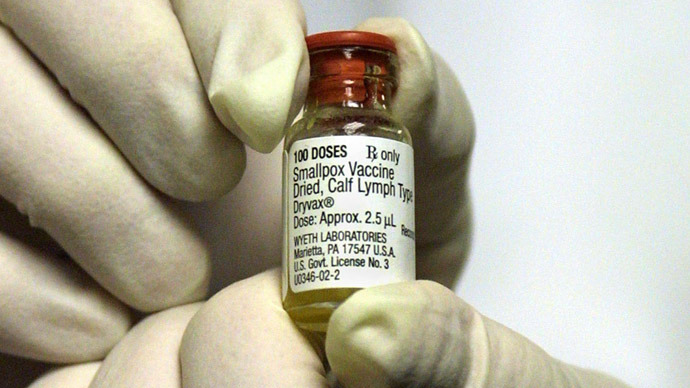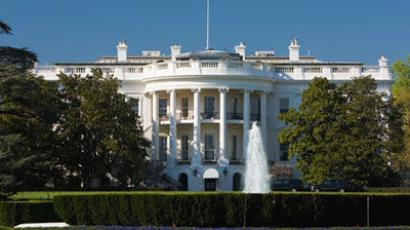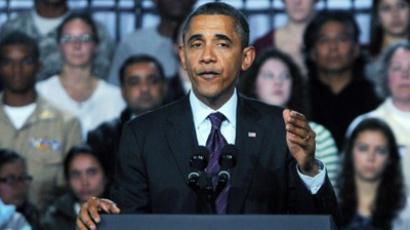UK smallpox terror threat downgraded after nearly £80mn ‘wasted’ on vaccine

One of the UK’s preeminent scientists has denounced the wasting of some £80 million on smallpox vaccines. The terrorist threat of the disease – now confined to laboratories – has been changed following repeated studies showing low infection risks.
The Ministry of Defense’s quiet downgrade of the danger posed by
smallpox sparked criticism from one of the country’s top
scientists. “The downgrade is of a threat that should never have
had an upgrade. Buying millions of doses of vaccine was a waste of
money,” Hugh Pennington, emeritus professor of bacteriology at
the University of Aberdeen, Scotland, told the Independent.
In total, the UK government spent £79 million on the anti-smallpox
scheme in the early 2000s.
In official documents obtained by the paper, ministers appeared to
agree, ruling that earlier preparations to counter the possible
spread of smallpox were too expensive, “unwieldy” and not
“proportionate” to the threat level. The Ministry of Defense
and the Department of Health have simultaneously been reviewing
strategies for countering a smallpox attack.
Although some stocks remain worldwide for research purposes, the
virus was formally eradicated in 1980; no one has died as a result
of the disease since.
No smallpox vaccinations have been necessary for around three
decades. But 11 years ago, in the wake of 9/11, former UK Prime
Minister Tony Blair ordered the purchase of millions of doses of
the vaccination for use in a “smallpox plan.” An enormous
national controversy erupted, as £32 million went to a donor for
the then-ruling Labour party, Lord Drayson, whose company,
Powderject, was granted a contract for the vaccine.
Professor Pennington pointed out that the slow-spreading nature of
the virus and the difficulties in sourcing or manufacturing it
means the threat of a virus terror attack is “far-fetched”
and overstated.
In 2003, Saddam Hussein was accused of manufacturing and
stockpiling the virus. However, when an investigative military team
was deployed to uncover evidence of the alleged laboratory program,
none was found.
Numerous studies on the transmission of smallpox have been
conducted since interest in the disease increased in the early
2000s. Many have reached similar conclusions that “smallpox
spreads slowly, mainly among close contacts, and that infectivity
before the onset of rash was negligible,” according to study
authors Martin Eichner and Klaus Dietz.
US stockpiles smallpox vaccine
Despite the threat’s downgrading in the UK, the over-stigmatization
of a potential threat from smallpox is rising in the US. In the
last week, it has emerged that Washington has taken orders for and
is stockpiling a new smallpox drug. The drug could treat
approximately 2 million of the country’s residents in the event of
an attack, at a cost of between $410 and $463 million.
A small company, Siga Technologies, has been responsible for
developing the drug over the past few years, and their announcement
of the first delivery was made on Tuesday.
Following anthrax attacks in the US in 2001, public funding became
more widely available for biodefense. However, in light of the UK
downgrade and repeated medical and bacterial investigations proving
its low transmission rate, it could be regarded as extremely
wasteful.
“Let's say someone releases the virus in an airport and you have
50,000 sick,” said Siga CEO Eric Rose. “Vaccination can stop
smallpox if it is given soon after infection.” However,
research has suggested that its spread would not have this large an
impact if released in an airport.
The granting of the contracts to Siga in 2011 echoed Britain’s
"smallpox plan" donor scandal. Ronald O. Perelman, the
controlling shareholder of the company, donated over $300,000
through a Siga affiliate to the Democratic Party during the 2008
and 2010 campaigns. Additionally, Perelman himself donated some
$50,000 towards Obama’s inauguration.
The drug, known as Arestvyr, is not yet FDA-approved, excluding for
use in emergencies; it has never been tested on smallpox in
humans.














